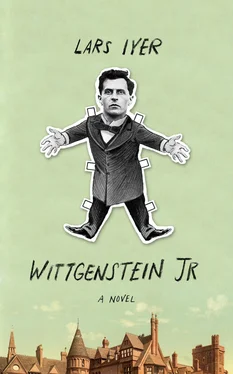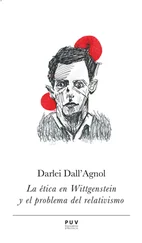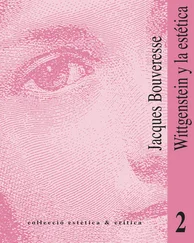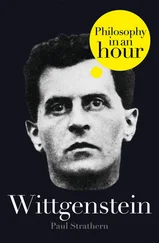The sky clouding over. The sun slanting in.
We walk, thinking of the many times Wittgenstein has been seen walking in Cambridge, and confiding our desire to share in Wittgenstein’s walks. To become, if not fellow thinkers, then at least fellow walkers , companions in thought.
To walk behind him, wondering about the effect on his thinking of the sun warming his head. Wondering about the effect of heavy rain or thick fog. Wondering about the effect of the crunch of snow underfoot. Wondering if it makes any difference to his thought whether he keeps the river on his left, or on his right. Musing upon the influence of topography on his thought. Of elevation, or depression. Pondering the difference between thinking on the valley bottom and on the hillcrest …
But better still would be to walk with him, we agree. To listen to his concerns as we walk together. To walk quietly and listen. To appear to take in his ideas, without understanding a word. To murmur noncommittally as he speaks. To nod our heads mutely, and at the right time. To agree, when we sense he wants agreement, and to disagree, when he seems to want dis agreement.
To pause when he takes mind to pause. To stand quietly as he works out a problem. And to start walking with him as he starts walking again, as his thoughts become unstuck again …
To take morning walks with Wittgenstein! Full of vigour and energy! Full of hope! Full of the promise of the work he will do that day! To take dawn walks, the world dew-wet with promise. Edenic walks, as Adam took with Eve just after the Creation. Walks in which he would feel his philosophical powers gathering … Walks in which he would draw the air to the bottom of his lungs … Walks in which he would nod his head to other early-risers, other kings and queens of the morning …
To take afternoon walks with Wittgenstein! Long and languorous walks. Wandering walks, walks without plan, on which he would muse upon the most intractable issues. Walks with the indefinite as their horizon. Walks as wide as the world, as open …
To take nighttime walks with Wittgenstein! After hours, when anything can be said. Walks of confidences, when he might talk hush-voiced of his dreams and desires. When he might whisper to us of secret hopes and fervours. Of his thought-ambitions. Of his Logik .
To take walks after midnight with Wittgenstein! Walks of the early hours. To take the insomniac’s walk, the too-awake walk. To take the over-conscious walk that would tire him out. How would we help him to find his way to sleep, walking among the last of the revellers and the puddles of vomit?
Wittgenstein, turning to us in desperation. In vulnerability . Wittgenstein saying: Help me! Help me to think!
Sounds of machine-gun fire. Booms. Shouting. The lecturer in the next room must be showing a film.
Wittgenstein winces.
His silence, our silence. His, a silence of inner struggle. Of armies of thought clashing inside him. Of Jacob wrestling the angel. Ours, a silence of expectancy, giving way to distraction.
A fly on the windowpane. Isn’t it too cold for flies …?
The playing fields, touched with frost. Football noises come through the fog.
A thought must arrive all at once, or not at all, he says.
Spontaneity: that is his aim. To think spontaneously , as by a kind of reflex.
We must retrain our thought-instincts , he says. We must rehone our most basic thought-responses .
Classroom décor. Faded posters. Old bound editions of learned journals in locked cabinets, roman numerals on the spines. Who reads them? What have they to do with anyone? How long have they been here? Did people ever read them? Did anyone ever care about such things?
The journals make us uneasy. They are not of us, not accessible to us. They’re not for us, yet they surround us. Isn’t Cambridge supposed to be our playground? Isn’t Cambridge supposed to centre on us ?
Cambridge should be about us — here — in the present. Cambridge should come to us , who live in the present …
The fire alarm. We remain at our desks. Is it a drill? Will it stop? Will silence return? The alarm is persistent. A fire warden bangs on the door. We have to vacate the building.
Outside. Low, dark cloud. We stand about in the drizzle, among all the other students. Mulberry, with his FUCK TOMORROW T-shirt. Titmuss, with his new nose ring.
We look at our feet, Wittgenstein looks at the sky. Minutes pass. Everyone around us starts to file back inside.
He can’t go in again, Wittgenstein says. We’ll have to walk, all of us. We’ll have to revive the peripatetic school .
The Great Bridge. Magdalene College. The River Cam, muddy and narrow.
How sick he is of Cambridge! he says. How tired he is!
This foul, damp city, he says. This rotten place. This marsh stagnancy, full of fogs and vapours. This place of lowness . This place of contagion . He’s suffocating, he says.
Imagine it! he says: a whole town built below sea level (more or less). Waiting for the sea to close over it. Waiting to drown, with just the spires of King’s College Chapel poking up above the water.
We walk quietly beside him, wary of his mood.
A don, walking his dog, greets Wittgenstein. Wittgenstein nods back.
The dog is a disgusting creature, Wittgenstein says when the don is out of earshot. Bred for dependency. Bred for slobbering. We think our dogs love us because we have a debased idea of love, he says. We think our dogs are loyal to us because we have a corrupted sense of loyalty.
People object to pit bulls and Rottweilers, but pit bulls and Rottweilers are his favourite dogs, Wittgenstein says. They don’t hide what they are.
People love Labradors, of course. But the Labrador is the most disgusting of dogs, he says, because of its apparent gentleness.
The kindness of the Labrador: disgusting. The pleasantness of the Labrador: disgusting. The even-temperedness of the Labrador: disgusting. The tractability of the Labrador: disgusting. The easygoingness of the Labrador: likewise disgusting. The affability of the Labrador: altogether disgusting. The good-naturedness of the Labrador: filth! Pure filth! The outgoingness of the Labrador: horrific. The sociability of the Labrador: despicable. The kindly eyes of the Labrador: wholly disgusting …
The Cambridge dons’ thoughts are like their dogs, he says. Their thoughts are like thoughts on a leash … Thoughts trained to play catch … Thoughts sniffing the rear ends of other thoughts … Thoughts with a collar round their necks. Thoughts whose mess you have to clean up.
The Cambridge mistake is to believe that thought simply comes when you whistle, he says. But thought must whistle to us! Thought should not be tame ! Thought should tear out our throats !
Wittgenstein speaks of dangerous thoughts, of thoughts which bite. He speaks of wild thoughts which snarl and sting. Of thoughts which have to be tamed and broken.
There are thoughts you have to avoid if they appear, he says. Shy thoughts, wary thoughts, thoughts that only cross your mind when all is calm and still, like deer passing through a woodland glade at dawn.
And there are thoughts that have to be flushed out , he says. Driven in herds. Thoughts that need baiting —thoughts that can be caught only by means of decoys, of lures, of hidden traps. Thoughts for which you have to lie in wait.
Читать дальше












